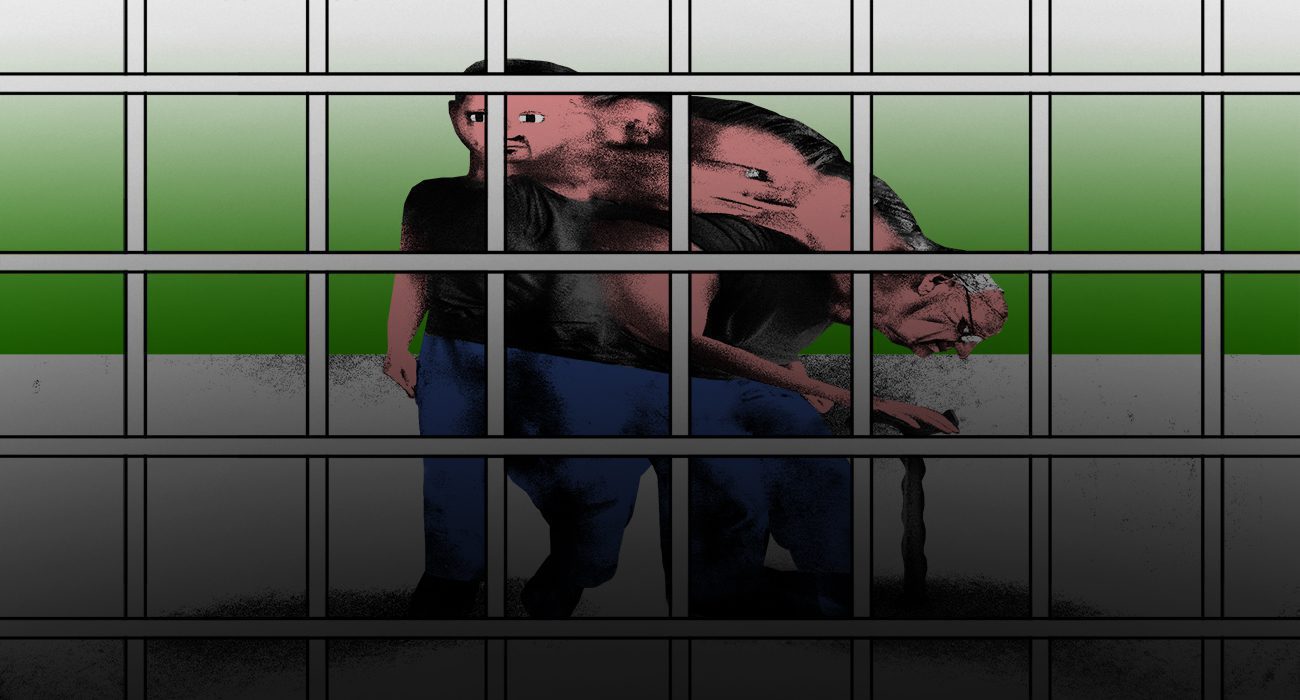To sentence a person for life in prison or execution under Soviet law was enough when his confession came after he was tortured. People in Ukraine were condemned by this principle until the new legislation appeared in 2012; However, those who got their life sentences under the old law were never acquitted. Our journalist Alena Vishnitskaya, tells how Ukrainians, serving a life sentence, have been waiting for justice for 20 years and why they die in prisons with no hope for justice.
Mum
Klavdia Danilovna opens the door of her apartment and nods at one of the rooms. “Here is my office,” she says. She is 76, she has worked as a nurse for all her life, and what she now calls an office, are her closets in the bedroom with hundreds of folders and thousands of documents of her son’s case. According to human rights activists and lawyers, he has been serving a life sentence in a trumped-up case for the last 22 years, and it is not a fact that he will ever be released from prison.
Igor was convicted in the late nineties and charged with organizing a double murder. In 1998 he was 24 years old. He worked as a driver delivering flowers. He got married and had a baby. He rented an apartment in the same area where his parents lived and in winter 1998, the police came to Klavdiya Danilovna’s apartment.
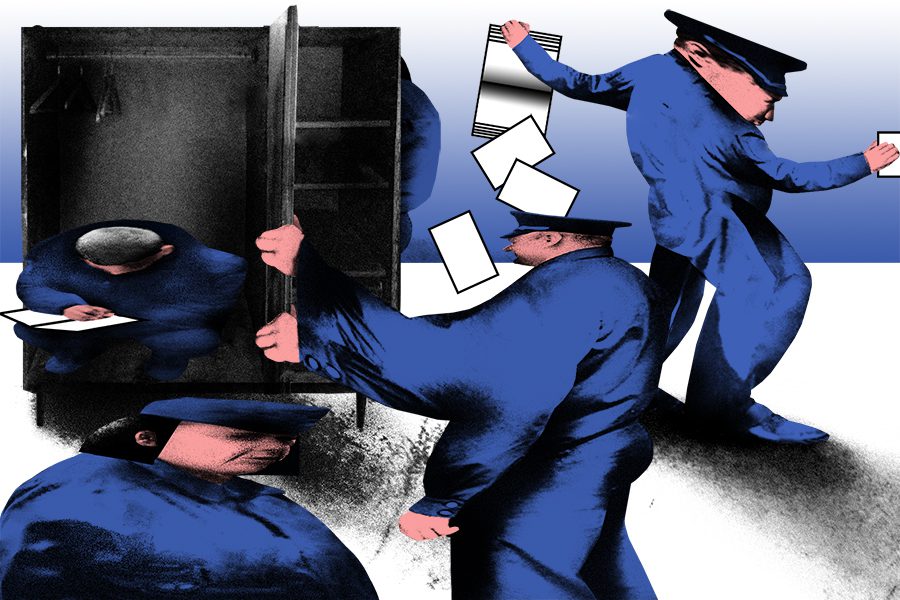
“It was evening and we were very scared. I said that we did not call anyone. But they said: “We will shoot if you don’t open it,” the woman says. That’s how it all started: the apartment was turned upside down, a pistol was found in the bedroom closet. They laughed and took it away, the information about it did not appear in the investigation. Only later did people tell me that the police could throw something— just to scare us,” – the woman remembers.
“I asked them constantly: What are you looking for here? I am a nurse, my husband is a driver, my daughter is also a nurse, and we are a normal family. ” They began to scoff. The operating Investigator said: “Right now, we’ll find the “green” (mening money). I have never seen “this green” in my life, I didn’t even understand what they were talking about,” says Klavdia Danilovna.
After that, my son was put in a pre-trial detention center. At the same time Klavdia Danilovna had her first microstroke. Two years later, Igor was transferred to a prison for those serving life sentences.
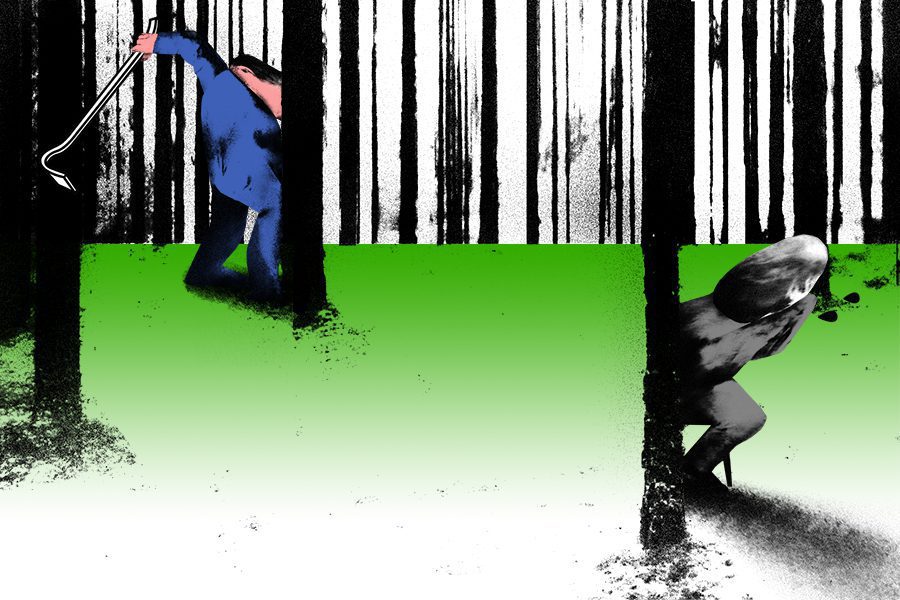
He was judged under Soviet criminal law of the 1960s. According to this law, it was enough to have a person’s confessions of a crime to sentence this person to death or life imprisonment. Confessions were often tortured out. Igor, for example, was tortured with a crowbar (this method of torture is also called a “parrot.” A person is handcuffed on his hands and feet, a crowbar is inserted under his chest and hung up). A few years later, this was confirmed by an examination – Igor had scars from the handcuffs. Klavdia Danilovna remembers that her son was taken to the forest by police to convince him to take the blame.
Igor was charged with organizing a double murder. Six more people were judged together with him: one returned home from the courtroom, one was given several years, and one got 15 years. According to the lawyer none of the participants in the trial testified about the involvement of Igor Vovkodav in the murder or even to its organization.

“This case was completely fabricated,” says Yuri Nefedov, lawyer of Igor Vovkodav. During the examination, they examined three different skulls which supposedly belonged to the same person. The village indicated in the verdict as the crime scene does not exist at all. One of these two murders did not happen at all and the second one took place far from the place where Igor Vovkodav was at that time. The time of the crime does not correspond to the evidence – in this case it is the end of autumn, and the witnesses claimed that it was the end of August/beginning of September. For some reason, the main witnesses were not interrogated in court and their testimony was not included in the case. This is an obvious falsification, apparently, since they were not even invited to the court, as to not give evidence contradictory to the verdict. The events allegedly took place in the Chernihiv region but the investigator in this case was from Kiev – it was completely incomprehensible and there was no legal basis for this.
The lawyer has been working with this case for 19 years. In 2015 he and his colleague initiated an appeal of the case – due to newly discovered circumstances. This is the only mechanism that allows a case to be re-opened from the archives. However, despite the obvious abuses and shortcomings of the investigation, the appeal of the case does not get off the ground. The lawyer says that over the past five years three courts and seven court compositions have changed. Now the case is being considered in the Desnyanskiy District Court. Hearings should be held there every three months, but it is constantly being carried over.
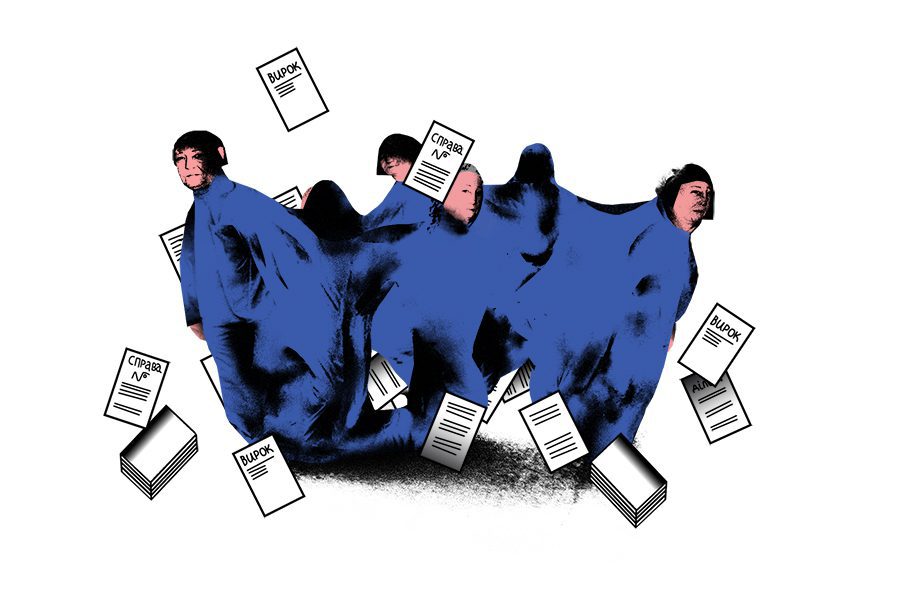
“One judge went on vacation, one got sick, one recused himself or something similar. We reached the finish line with almost all compositions of the court and started again. Formally, everything is fine, the process supposedly does not drag out. But the real reason is that the court simply doesn’t want to make a decision in favor of Igor Vovkodav. It never happened that the court of first instance released a life-sentenced person, ”the lawyer explains.
“During these 20 years I went through numerous different courts and realized that no one has delved into Igor’s case. They only tell me that if he is sentenced to life in prison, then he is guilty,” adds Klavdia Danilovna.

“They cannot pass a verdict against us because they have all the evidence of innocence, but they don’t want to rule in our favor either, so they are dragging out the process by all means,” says Yuri Nefedov. – Nobody wants to be a pioneer. If a decision is made in this case, then other courts will also go this way and many decisions will be canceled. People will really have to be released, as they are convicted with all possible violations.”
System
There is no procedure for correcting judicial errors and reviewing criminal sentences for prisoners given a life sentence in Ukraine. Acquittals are also a fairy tale. The Kharkiv Human Rights Group has been collecting stories of those arbitrarily sentenced to life imprisonment for over 10 years. Now there are 13 people on their list.
“In fact, there are many more people like that. There are about a thousand convicted people under the Soviet code. Soviet Legislation of the 60s made it possible to convict a person based on beaten out confessions, so what kind of evidence can we talk about? We are not talking about the innocence of everyone – the court must say this. But impartial and professional court, ”explains lawyer Andriy Didenko, program coordinator of the Kharkiv Human Rights Group.
People were tried under Soviet criminal law, until a new one was adopted in 2012. Lawyers hoped that this would affect and increase the number of acquittals, but this did not happen, – explains Didenko.
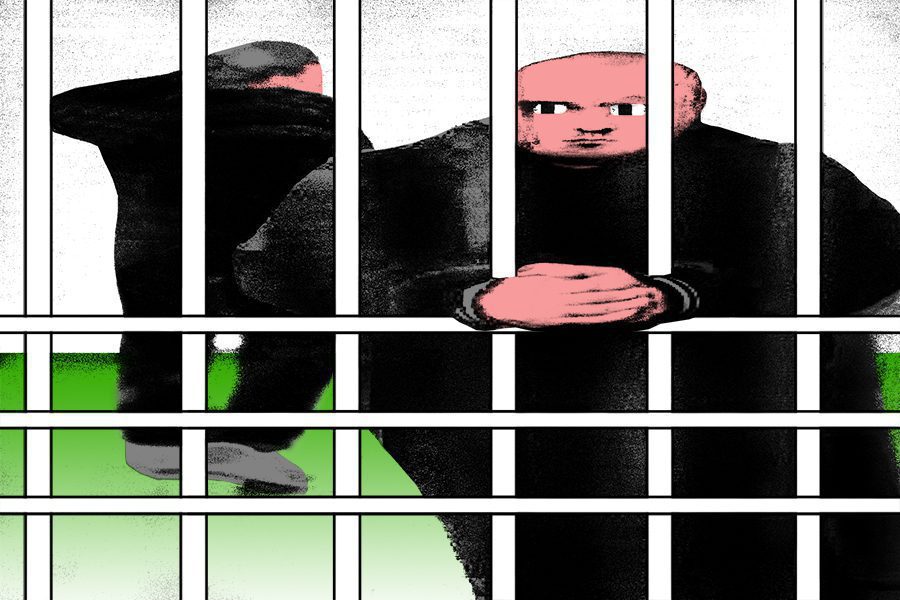
“In the countries of the civilized world, for example, Great Britain or France, the number of acquittals reaches 25% of the total number of sentences,” says Didenko. “Whereas in Ukraine they are still less than one percent.”
The lawyer clarifies that acquittals are when the state repents and admits its mistakes: “This should not be surprising, especially when it comes to the mistakes of the Soviet punitive system, which worked to blindly condemn a person without understanding.”
Didenko adds that according to statistics, which covers not only life imprisonment, about 4% of the total number of convicts are completely innocent people who were in the wrong place at the wrong time, or who incriminated themselves, etc. About 10% percent are those whose qualifications are overstated. It means that they were given more than they deserved: “For example, when the investigation does not understand the case and does not find out anything, in court the crime is qualified as premeditated murder even if it was self-defense or a person was in a state of passion and so on. It is almost impossible to get such cases reviewed. ”

It is impossible because until recently, the verdicts were to be reviewed by those who gave them: “The investigation of these cases and supervision over the observance of the law during the pre-trial investigation were carried out by investigators of the prosecutor’s office. The prosecution in court is also the prosecutor’s office. A person could initiate an appeal of a sentence only through the prosecutor’s office. It is strange to turn to a wolf that has eaten a sheep and ask him not to do it,” says Didenko.
The problem is also in the social stigmatization of prisoners – people do not care about justice until they are faced with its problems themselves. “People think about different things: pensions, salaries and others, but certainly not about the rights of prisoners serving life sentences. At least until they or their relatives find themselves in a situation where they are forced to confess under torture, and then, do not count on a fair sentence for decades,” the lawyer says.

Didenko adds that people sentenced to life imprisonment under the old Soviet code are the most discriminated group of people because they are deprived of the right to appeal. This is despite the fact that Ukraine has the largest number of life-sentenced prisoners among all European countries (there are even more of them than in Russia). At the national level, it is almost impossible to obtain a retrial even if the European Court of Human Rights finds a violation of the right to a fair trial. For instance, in 2012, 2016 and 2019 the ECHR made decisions on cases of people sentenced to life imprisonment and stated that the defendants were tortured in order to obtain confessions. This actually did not affect the review of cases in Ukraine – the convicts were never acquitted.
Time
Among those who did not wait for the revision of his case was Alexander Rafalsky. He was detained in Kiev on suspicion of murder and was tortured for two weeks. He was beaten with truncheons and electric shocks and was tаken to the forest. He never signed the confession – however, the testimony against him was given by three “accomplices” who rejected them in court, explaining that they had signed the documents during the torture. The verdict does not correspond to the materials of the case, which led the lawyers to conduct an alternative examination, refuting the crime and the guilt of the convicts, including Rafalsky. Three out of four convicted in this case did not wait for the appeal of the sentence. They died within the walls of the prison.

“Now, Rafalsky’s mother is seeking his acquittal posthumously. So that at least Alexander’s daughter does not live like the daughter of a murderer,” adds Andrei Didenko.
Each case of a “lifer” from the list of the Kharkiv Human Rights Group has its own puzzles that do not add up. The only proof of the triple murder of relatives by pastor Yaroslav Misyak was a confession. Moreover, the verdict took into account the testimony of an expert who who claimed that although the wound was less than thirty percent, the knife had completely entered the body.
In order to eliminate such a discrepancy, in the late nineties a so-called expert was interrogated, who said that the wounds could change. in court, the expert said everything that was needed, even unrealistic things,” explains Vladimir Silvashi, lawyer of Yaroslav Misyak.
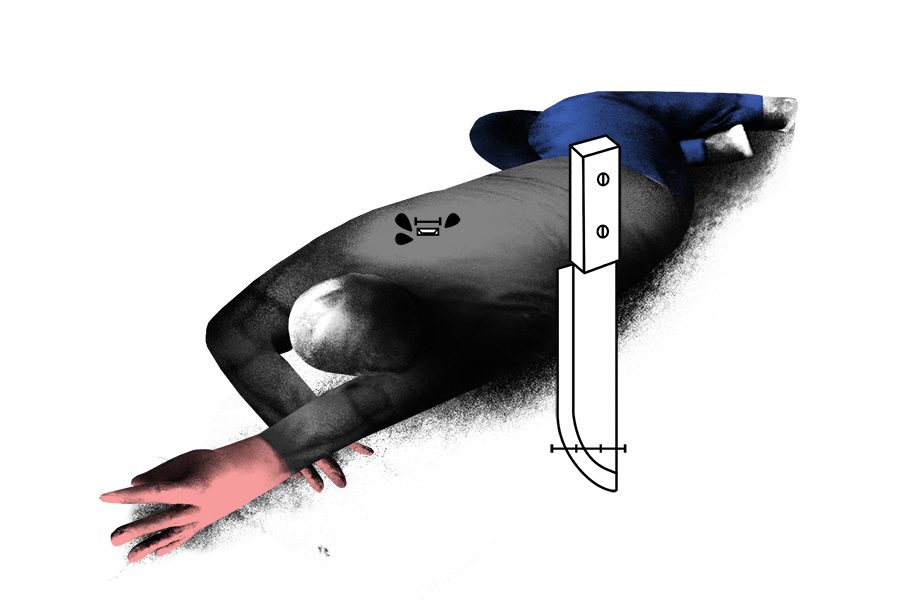
Now, this case is also being reviewed in the district court. It was transferred there from another court where the appeal was refused. For such cases, it was a traditional refusal: let’s not touch what happened many years ago.
“It turns out strange: when the process of decommunization is going on, cities and streets are renamed, but people convicted by the punitive Soviet regime continue to serve their sentences without a single chance to review these sentences,” says Andrei Didenko. It seems that these people are forgotten by the state. They die without waiting for justice. “
Normal family
Klavdia Danilovna shows the psychological characteristics of her son from the prison. It says that “the convict is dominated by a melancholic type of temperament, mental processes within the normal range, feels depressed and confused in case of failures, has a certain life position, and defends his views and avoids conflicts.” Klavdia Danilovna is looking for several more similar characteristics in the folder. She is proud of these characteristics instead of filial university degrees, sports awards, or career success.
During his time in prison, Igor acquired several serious health conditions, in particular, heart problems. The medical record contains a paragraph of the listed ailments which is updated every year. Klavdia Danilovna has problems with her legs, which is critical in her situation because she needs to run around the courts.

“In my life I’ve never talked about what these 20 years were like for me. I don’t remember when I slept normally. And her husband says: “When will you stop winding yourself up?” How to stop? Where is my child? – says Klavdia Danilovna. – Igor is a normal child. We are also a normal, positive family, do you understand?”
In prison, Igor was allowed to keep a kitten in his cell. It grew up, says his mother, surrounded by his love. Igor takes care of him, combs, plays with the kitten. Her son also plays sports and reads religious literature – this, says his mother, gives him hope.
When Igor was taken away, his daughter Polina was eight months old. During the time her father was in prison, she graduated from high school and university with honours.

